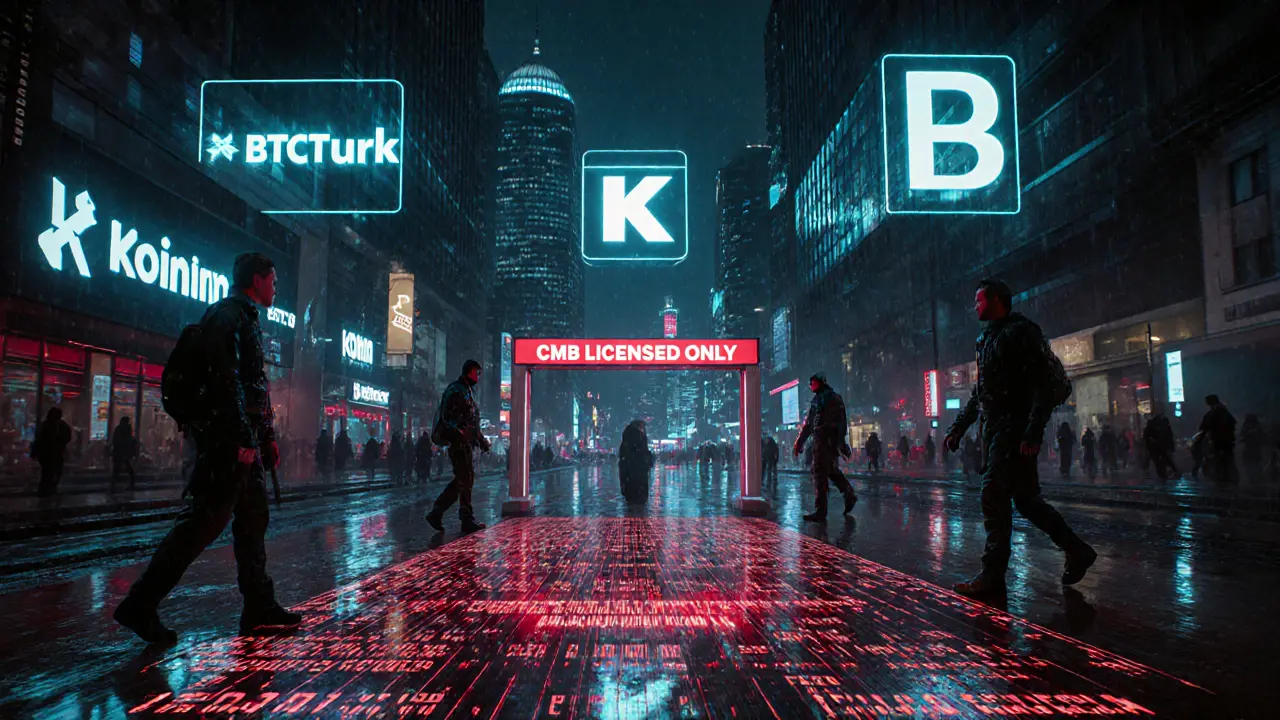Crypto Exchange Licensing in Turkey: Rules, Risks, and Realities
When it comes to crypto exchange licensing in Turkey, the legal framework for crypto businesses operating in the country that requires registration with the Capital Markets Board (CMB). Also known as VASP registration Turkey, it’s the only path for exchanges to operate legally — but most don’t take it.
Turkey’s government doesn’t ban crypto. Instead, it forces exchanges to get licensed under strict rules that demand local presence, KYC/AML systems, and financial audits. The Capital Markets Board (CMB), Turkey’s financial regulator that oversees securities and now digital asset platforms started pushing for compliance in 2023. But many exchanges — including big names used by millions — still operate without a license. Why? Because the process is slow, expensive, and requires handing over sensitive data to a government body many distrust.
Users aren’t protected if an unlicensed exchange gets hacked or vanishes. Unlike banks, these platforms don’t have insurance or legal recourse. That’s why VASP Turkey, a regulated crypto service provider required to follow anti-money laundering rules under Turkey’s Financial Crimes Law status matters. Only a handful of local exchanges — like Paribu and BtcTurk — have gone through the process. The rest? They’re gambling with your money. And with Turkey’s inflation hitting 60% in 2024, more people are turning to crypto as a store of value — making the lack of legal clarity even riskier.
It’s not just about compliance. It’s about survival. The Turkish lira’s instability pushes citizens toward Bitcoin and stablecoins, but without licensed exchanges, they’re forced to use offshore platforms with no local support. That’s why many use VPNs to access Binance or Kraken — a workaround that breaks no law, but leaves them outside Turkey’s regulatory safety net. Meanwhile, the CMB keeps warning users: "Don’t use unlicensed platforms." But they don’t offer a simple, fast alternative.
If you’re running a crypto business in Turkey, licensing isn’t optional — it’s survival. If you’re a user, know that your funds aren’t protected unless the exchange is officially registered. The gap between what the government wants and what actually happens is huge. And until that gap closes, crypto in Turkey will stay in legal limbo — used by millions, regulated by none.
Below, you’ll find real cases, broken rules, and the hidden costs of trading crypto in a country where the law says one thing — but everyone does another.




